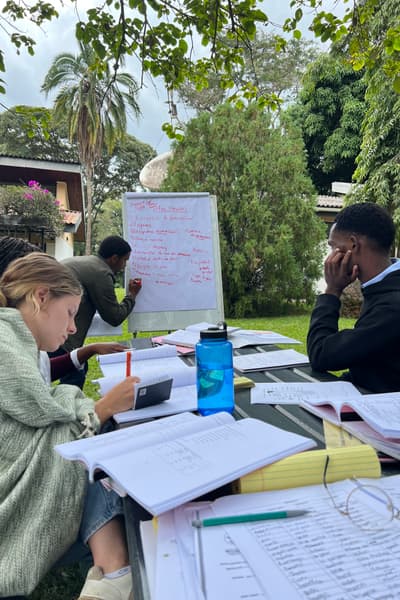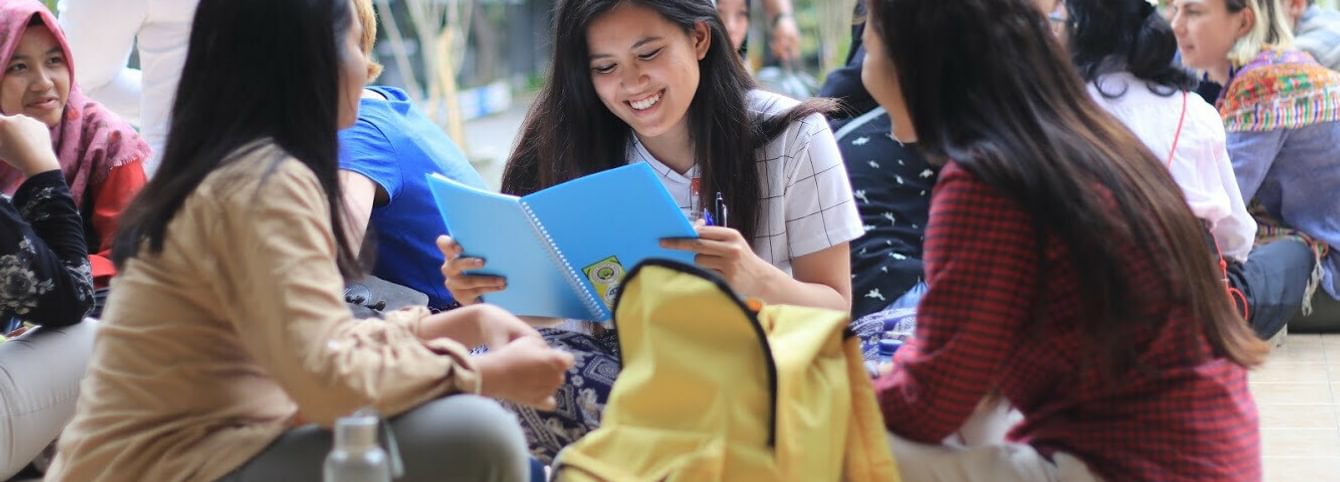Academics
The CLS Program is a rigorous academic program. Participants’ active engagement in the academic curriculum is key to achieving proficiency in the CLS language.
Language Instruction
CLS participants take approximately 15 hours of group-based language classes each week and participate in a regular individual consultation with a faculty member. The curriculum is designed to develop participants’ reading, listening, speaking, and writing skills and provide opportunities to practice these skills in a variety of contexts. Students are expected to participate actively in the learning process and take advantage of opportunities to speak and ask questions during class. Participants are also expected to study outside of class and complete all class assignments, which includes approximately two hours of homework each day.
As the CLS Program selects participants from diverse fields of study and levels of higher education, participants inevitably have a range of diverse language learning backgrounds. It is important for participants to be respectful of their peers’ interests and learning styles and understand that the class may spend time on general vocabulary or grammar concepts that some in the class have already learned, particularly in the first weeks of the program. The goal of the CLS Program is to help participants master the language so that they can effectively communicate with people of other cultures. Throughout the summer there may be a variety of situations that are not directly tailored to participants’ own personal language learning interests, but CLS staff encourage students to keep an open mind toward new language learning opportunities.
Language Placement
Prior to the start of classes, CLS instructors conduct language testing to determine class placement. Please note that the assessment process is for placement purposes only, and there is no placement outcome that will adversely affect a student’s participation in the program (e.g., testing at the intermediate level despite applying for CLS at the advanced level). Due to widely varying language programs in the United States, participants may be placed at a different level than they anticipate, or their perception of their level may differ from the one the placement test shows. Most times, the placement from testing is accurate; however, if a student finds themself over- or underwhelmed in their classes after the first week, they should speak to their Resident Director and the institute staff about changing their class placement or seeking out further independent work. CLS staff will do their best to ensure that all participants are placed in the most appropriate classes.

CLS Swahili students take notes on a grammar concept in Arusha, Tanzania.
Academic and Classroom Expectations
During the CLS Program, participants study with instructors whose methods and techniques often differ from those encountered in the U.S. or elsewhere. American Councils and CLS partners have invested substantial resources in developing a strong academic program. This includes training instructors, sending staff and language-teaching experts to partner sites, and carefully reviewing student evaluations of existing programs so that adjustments can be made as necessary.
Although CLS staff work to make the academic transition as smooth as possible, participants should expect differences in academic culture between their host community and the United States. Part of the immersive language-learning experience is growing to understand how a different culture views the academic process. CLS instructors are trained and experienced teachers who are familiar with the teaching materials and curriculum and have experience interacting with and instructing non-native speakers. They may not, however, use the same systems or teaching methodologies that participants are familiar with in the U.S., and they may not have the same expectations for the classroom as American teachers. Therefore, it is important for participants to be patient and flexible as they adapt to the educational offerings of their CLS host institution.
Grading
Participants are given grades by their instructors. Grades are assigned based on a variety of factors that are determined by individual instructors. Primary forms of evaluating student progress may include homework assignments, in-class exercises, exams, and projects. Teachers use the grading system to evaluate students’ language skills in spoken interaction, spoken production, reading, listening, and writing. CLS participants are required to complete all homework assignments and exams, regardless of whether they have elected to receive academic credit for the program.


